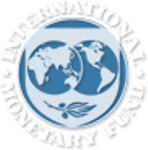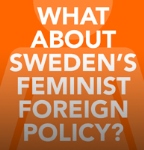| |
|
| |

|
As the IMF prepares its new institutional view on how to address social protection in its work with member countries, the GCSPF has prepared this note to highlight a number of policy considerations that we believe the Fund should take into account in its deliberations. We first review the failures of IMF policies as seen by its critics and by its own Independent Evaluation Office, which has prompted the Fund’s current re-examination of its approach to social protection. Second, we give our view on what the proper scope of social protection should be in the IMF’s work with member countries. We argue that the Fund needs to base its social protection perspective on the standards of the international community as a whole, in particular, taking guidance from the 2030 Agenda for Sustainable Development adopted by the United Nations General Assembly and from international agreements forged in the governing body of the ILO. We conclude with recommendations that the IMF should adopt to better assist countries to arrive at effective, adequate and fair systems of social protection that are fiscally sustainable in the long run, and that are maintained and can be increased as needed during times of societal stress owing to economic difficulties or natural calamities. Read more | |
| |
|
| |
|
| |

|
How the World Bank turns meanings to its advantage.
With all the paradigmatic changes the World Bank has been promoting in the field of social policies, one element never changed in the past thirty years. Social policies were meant for the poor, governments had to find the best ways to target those who really needed their help.
The reasoning is simple: poor people, as was spelled out in its first World Development Report on Poverty of 1990, were those left behind by growth and by governments. The wrong policies were applied so that poor people did not get access to labour markets and, moreover, these labour markets were made more difficult to enter because of minimum wages and other ‘protective’ rules the poor did not really care about. If one really wanted to help the poor, one had to abolish all these well-meant but adverse policies. Open, deregulated markets, at the local and the global level, were the best programmes for the poor. In its ‘Doing Business’ Report of 2013, the World Bank still considered fixed term contracts and 50-hour workweeks as positive achievements, whereas premiums for night-work and paid annual leave were on the negative side. Read more | |
| |
|
| |
|
| |

|
The Global Conference on Financing Social Protection brought together over 100 participants from trade unions, civil society, academia, think tanks, international organisations and government from across the world to identify the challenges to financing social protection and to explore the solutions available both at the national and the international level. Participants discussed the methods for identifying adequate financial resources for social protection reforms, examined the various ways such reforms could be funded both on the national and the international level and identified opportunities for further work together to promote and implement adequate, sustainable financing for universal social protection systems. The conference was co-organized by the International Trade Union Confederation in partnership with the Friedrich Ebert Stiftung and World Solidarity and it was held on September in Brussels. The final documents are available in English, French and Spanish.
| |
| |
|
| |
|
| |

|
Was the purpose of introducing the feminist foreign policy just an opportunistic play by the Swedish Ministry for Foreign Affairs?
Besides to be preaching for the choirs – since the public opinion already agree with these ideas in Sweden – it would have been a
failed attempt to gain popularity in the arenas Swedish foreign policy act upon. This due to the current state of feminist issues among the power players of the UN Security Council, the EU and other multilateral alliances.
These issues are not, and have not been, agenda priorities in many countries foreign affairs, nor is feminism a monetary power house question such as trade or a hard topic such as security.
For the Swedish Ministry for Foreign Affairs, trade, security, development and foreign diplomatic relations is still at the core of the work. What the
Swedish government, with Swedish Minister for Foreign Affairs Ms. Margot Wallström in the forefront, are doing is to address that with a feminist filtered policy the creation of a better and more equal world, for the many, is possible. To underline that even though others might think this is unimportant questions to focus on, Sweden can take a stand and stress the importance of a feminist approach.
The same beliefs are shared by Olof Palme International Center, and in our work in many regions globally, equality and women empowering are key
factors for a sustainable development, transitioning communities in democratic and inclusive direction.
What has the feminist foreign policy meant? Is it anything that we can learn from and is it room for improvement? We asked a few people for their views. Read more
| |
| |
|
| |
|
| |
The European Parliament’s Intergroup Fighting Against Poverty and EAPN organise an exchange on the European Anti-Poverty Network’s 2018 Poverty Watch Reports.
The event “Poverty Watch: The reality of poverty and social exclusion in the EU” will be held on Tuesday 29 January 2019, from 13h00 to 15h00 at the European Parliament in Brussels, room ASP 5E3.
113 million people still face poverty and social exclusion in the EU, with little progress on the Europe 2020 poverty target, to reduce poverty by at least 20 million by 2020. The gaps between countries also get wider.
This Intergroup event will discuss the state of play on poverty in the EU in 2018 and explore what can be done, in the context of the European Pillar of Social Rights. Read more | |
| |
|
| |
|
| |

|
In September 2016 ILO and World bank launched the Global Partnership for Universal Social Protection aiming at unleashing an unprecedented effort to roll out universal social protection in countries all around the world.
A USP 2030 high level conference will take place in February 2019. The aim is to inspire governments from a broad range of countries to join in and to politically commit to take action for universal social protection in their countries. To that end, a ‘Call to Action’ will be launched during the Conference.
Dates:
- 5th February: USP2030 High-Level Conference organized by the EU and USP2030 partnership. The session will be broadcasted live here
- 6th-8th February: Universal Child Grants international conference jointly organized by UNICEF, ILO and ODI. The session will be broadcasted live here.
In case you are interested to participate, please pre-register online. Participation is free, but organizers do not provide funding for travel expenses.
In case you are planning to participate in any of these events, please send a message to Ana (anaclau@item.org.uy), as an informal meeting of the GCSPF will also take place. Read more
| |
| |
|
